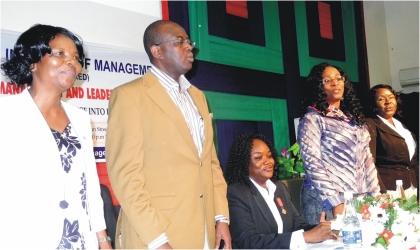Business
Inflation: NECA Wants Demand, Supply Shocks Addressed

The Nigeria Employer’ Consultative Association (NECA) says policy measures to address demand and supply shocks will help address the rising inflation rate as well as stimulating the economy ahead of potential recession.
The NECA Director-General, Mr Timothy Olawale, made this known in a statement, yesterday while reacting to the release of the March 2020 Consumer Price Index (CPI).
The reports that data released by the National Bureau of Statistics has shown that the CPI, which measures inflation, increased by 12.26 per cent in March.
An analysis of the report released by the bureau on April 2, showed that Lagos witnessed a decrease in the general price of food items in March on a month-on-month basis.
The CPI increased by 0.06 percentage points from the 12.20 per cent recorded in February.
Olawale said: “Following the release of the March 2020 CPI, the Inflation rate has increased by 0.06 per cent from the February 2020 figure to 12.26 per cent rising for the eighth consecutive month and the highest inflation rate the country has recorded in 23 months.
“With the lockdown and closure of businesses, it is believed that recession looms in the economy amidst the rapid spread of COVID-19 pandemic.”
The director-general said that conventional policy measures currently being taken such as reducing interest rates and costs of borrowing, tax cuts and tax holidays were quite remarkable.
He said, however, that these conventional policy measures were quite potent when there were demand shocks.
“There are limitations to the successes that can be recorded when demand shocks are combined with supply shocks.
“It is already apparent from the emergence of the current crisis that there are implications on the economy from both the demand and supply sides.
“Some of the demand factors include social distancing with consumers staying at home, limitations in spending and declining consumptions.
“On the supply side, factories are shutting down or cutting down production and output, while in other instances, staff work from home to limit physical contact,” he said.
Business
Two Federal Agencies Enter Pack On Expansion, Sustainable Electricity In Niger Delta

Business
Why The AI Boom May Extend The Reign Of Natural Gas

Business
Ogun To Join Oil-Producing States ……..As NNPCL Kicks Off Commercial Oil Production At Eba


